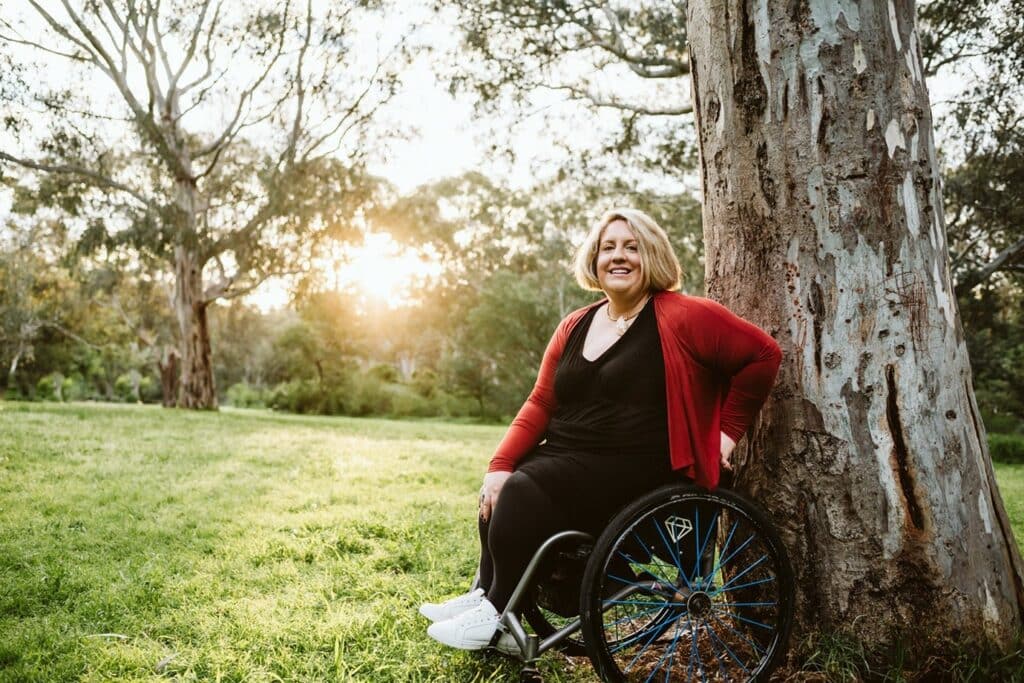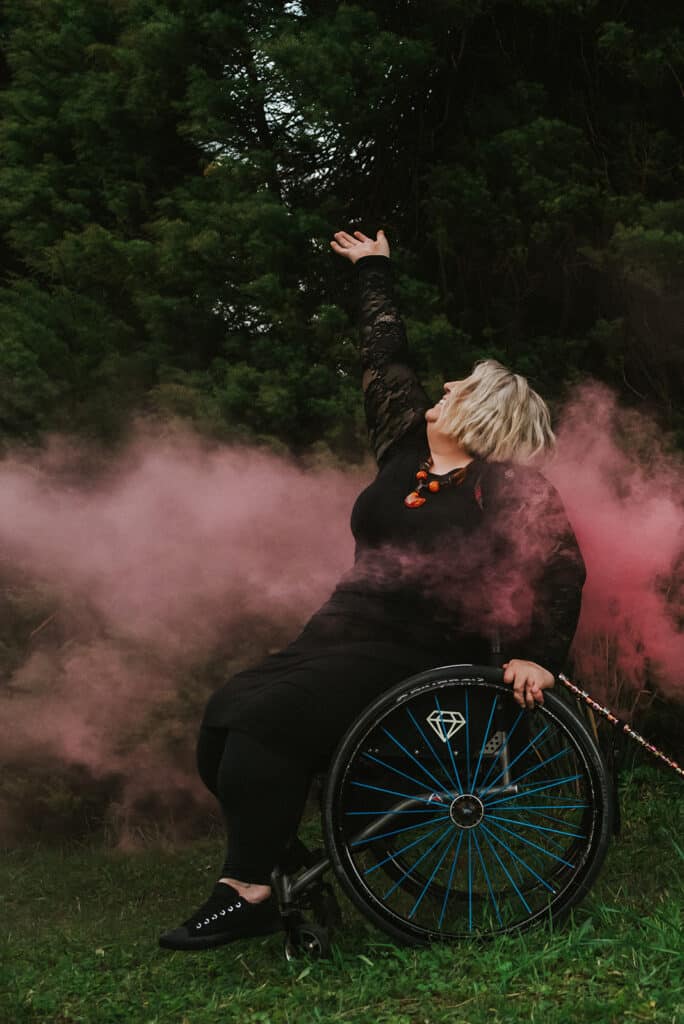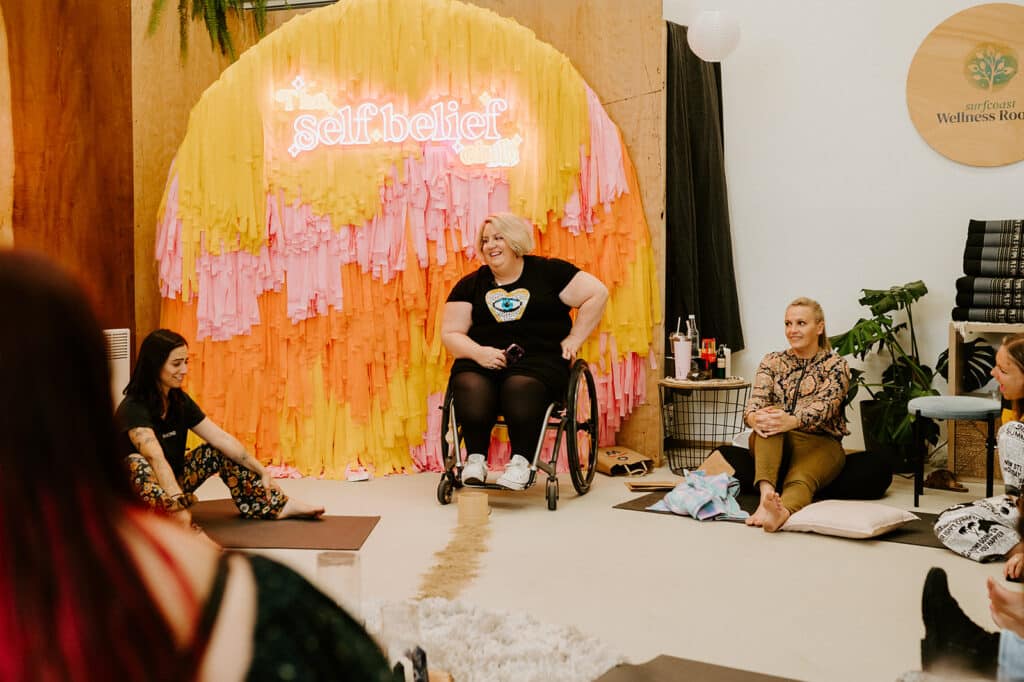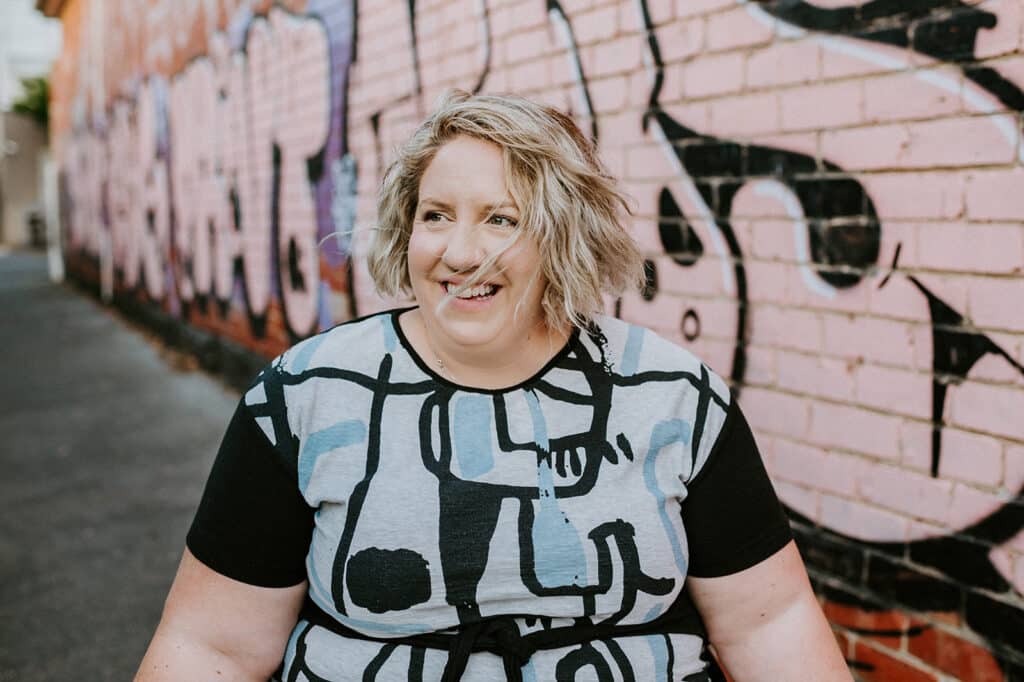Elle Steele decided at age 12 that she was going to the Paralympics for swimming. Not only that, she went one step further and decided she was going to win a gold medal for Australia.
“I had no concept of what any of that would mean, but I just held onto those goals,” says Steele, who can now boast a remarkable 13-year swimming career, with the titles of Paralympian and gold medalist under her belt.
“We forget that we have this power within us to decide what it is that we want to have in our lives,” says Steele.

Connecting to this power from a young age, Steele won her first gold medal in competitive swimming at just 14. Then, at age 17, she represented Australia for the first time at the 2000 Sydney Paralympics in the 400-metre freestyle, breaking a national record.
Steele was born with a congenital disability called Arthrogryposis, which affects the range of motion in the joints and impacts the cartilage in the body. She also developed Amniotic band syndrome (ABS) in the womb, affecting the shape of both her hands.
“Sport has been everything,” says Steele. “It has shaped me. It has shaped how I react to things, and how I have managed my disability.”
“We create our own reality,” she says.
“Things are always going to happen in your life, but it’s how you react to those things. And so when I was a kid – and when I was early in my swimming career – I would react in a way that was like a victim because the world was telling me I was a victim. But then I realised I could change that narrative and go ‘well, you might see me like that, but I don’t see myself like that’.”

Throughout her swimming career, Steele has represented Australia internationally five times, including at the 2000 Sydney Paralympics. She’s also been captain of a number of Aussie swimming teams and held a Victorian Institute of Sport scholarship for eight years.
After swimming, Steele took up wheelchair rugby. She was the only woman to be selected to play for Victoria at a national level.
Today, Steele is an award-winning sportswoman, experienced personal coach and motivational speaker, who works in the personal development space as The Self Belief Agent.

She’s also the Project Manager for the ‘Building Inclusive Sport Clubs’ program to promote the access and inclusion of people with disabilities in sporting clubs across Australia, working with Disability Sport Australia.
Recently, Steele was selected by the Office for Women in Sport and Recreation to become a Change Our Game ambassador. Steele is joined by seven other inspiring women in this movement to raise awareness on key issues in women’s sport.
Steele is using this advocacy platform to create equitable change for all people with disabilities in sport.
Emphasising the importance of her role with the Change Our Game movement, Steele says she’s proud that she and the other ambassadors have a direct opportunity to help other people feel the positive, life-changing aspects of sport that they’ve experienced.
She says they’re able to do this “by breaking down inclusion and access issues and being able to share our expertise and make it easier for people to access the sports that they want to play.”
Looking back at her own sporting career, Steele can see clearly the changes she wished had been in place when she was competing at such a high level. These are the changes she’s working to implement for the next generation.
And while there are some days where this change might feel impossible, Steele remains optimistic about the future.

“There are going to be days when you feel like you’re hitting your head against a brick wall,” she says. “And on those days, you just need to go for a walk or a swim in the ocean.”
“We’re not going to change the world in 24 hours because there’s so many different ways that people view women and sport and disability.”
“We’ve all got our own perceptions or ideals of how people are meant to behave, but sometimes we need to put them aside for a bit so we can learn from other people,” she adds.
“It’s okay if you just go, and take a deep breath, and start again.”
Change Our Game Ambassadors are using their platforms to help drive change and raise awareness on key issues and barriers for women in sport. Change Our Game is led by the Office of Women in Sport and Recreation to level the playing field for women and girls. Be sure to follow the Ambassadors’ journeys through @ChangeOurGame on socials.

